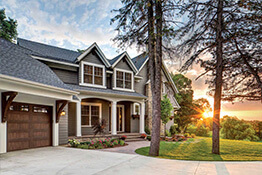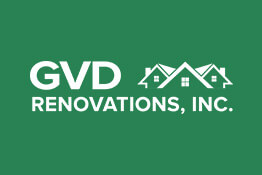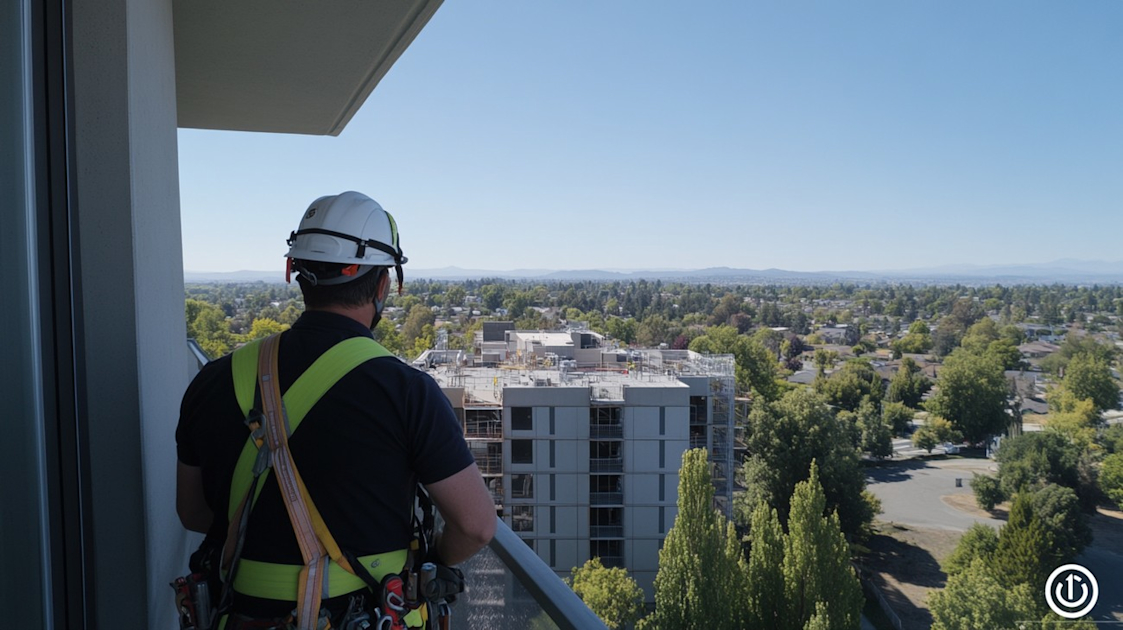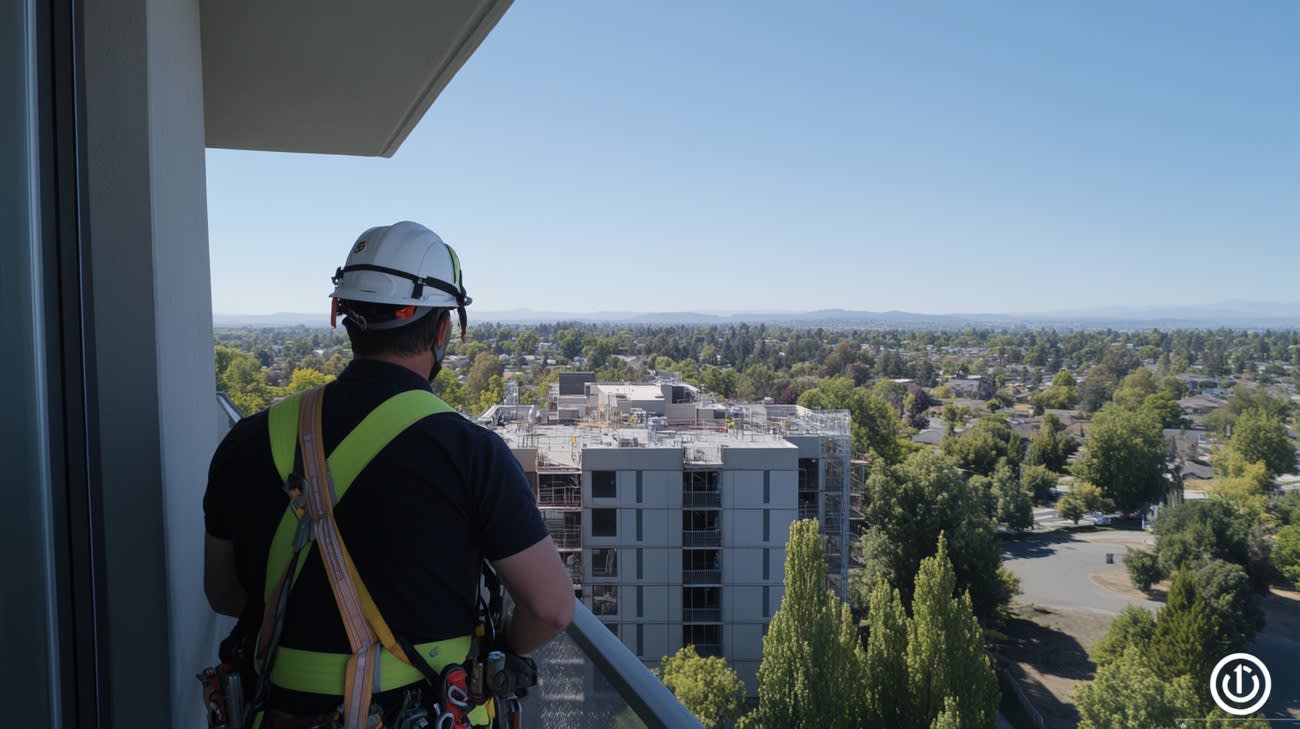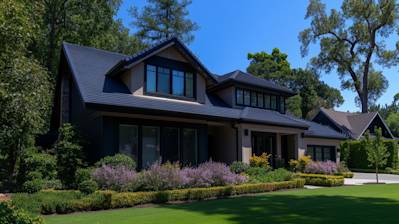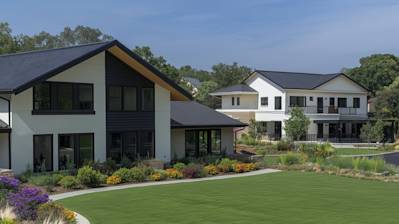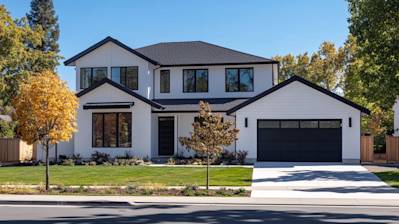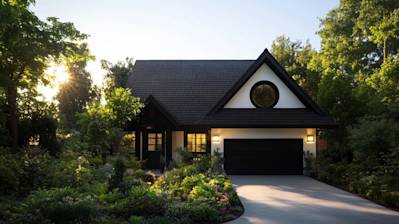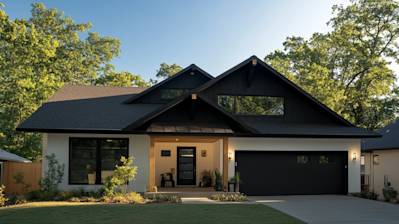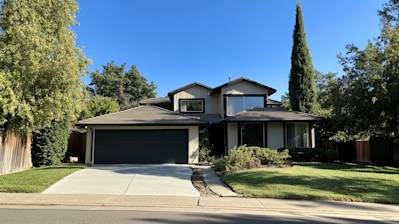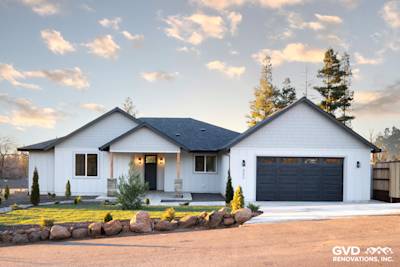For building owners and property managers, the value of a comprehensive commercial roof inspection is instrumental in the maintenance and longevity of your building. A timely roof inspection can save you from unwanted repair costs and ensure a safe environment. This article emphasizes the importance of regular commercial roof inspections and breaks down the procedure for better understanding.
The Need for Commercial Roof Inspection
Unlike residential roofs, commercial roofs are often flat or have a low-slope, which often makes them more susceptible to damage. Pooling water, roof leaks, punctures, and blisters are common problems associated with commercial roofs. Regular inspections can help detect these problems at an early stage and save your roof from severe long-term damage.
Early detection through regular inspection can ensure:
- Prevention of roof's premature aging
- Less repair costs in the future
- Longer lifespan of the roof
Frequency of Commercial Roof Inspections
The National Roofing Contractors Association (NRCA) recommends at least two commercial roof inspections per year: one in spring and one in fall, plus after any significant weather event.
Embracing Preventive Maintenance
A proactive approach to roof maintenance lets you anticipate potential roofing problems rather than reacting to them. Working with experienced roofing inspectors, you can develop a preventive maintenance plan that includes regular roof inspections to address small problems before they escalate.
The In-Depth Commercial Roof Inspection Process
Commercial roof inspections are a multifaceted process. Understanding the steps involved can help you get the most out of your inspection.
Overall Inspection
The roof inspector begins by assessing the general condition of the roof, which includes a visual inspection for signs of wear and tear, damage, or any other abnormalities.
Structural Inspection
The inspector examines the structural integrity of your roof. They look at the condition of the decking, look for signs of sagging, and ensure that the stability and structure of the roof remain intact.
Material Inspection
The material inspection involves checking the roof for signs of loose, damaged, or missing material. This could include blisters, punctures, shrinkage, or rippling.
Workmanship Inspection
Workmanship inspection involves checking previous repair jobs and installation work to ensure no incorrect installations or subpar work that may cause problems.
Interior Inspection
The inspector also checks the interior of your building for signs of water intrusion, mildew, mold, and other indications of possible roof damage.
A good commercial roof inspector will provide you with a detailed report of their findings, complete with photographs and recommendations for any necessary repairs or maintenance.
Valuing the Role of Roof Inspection Professionals
Commercial roof inspections should be carried out by experienced professionals equipped with the right tools and knowledge. They not only have an eye for detail to spot potential risks but also understand the roof's design, materials used, and have appropriate safety training.
Choosing the Right Commercial Roof Inspector:
- Look for experience in commercial roofing
- Ensure they have appropriate training and certifications
- Ask about their inspection process and what it includes
- Confirm they provide detailed reports after inspections
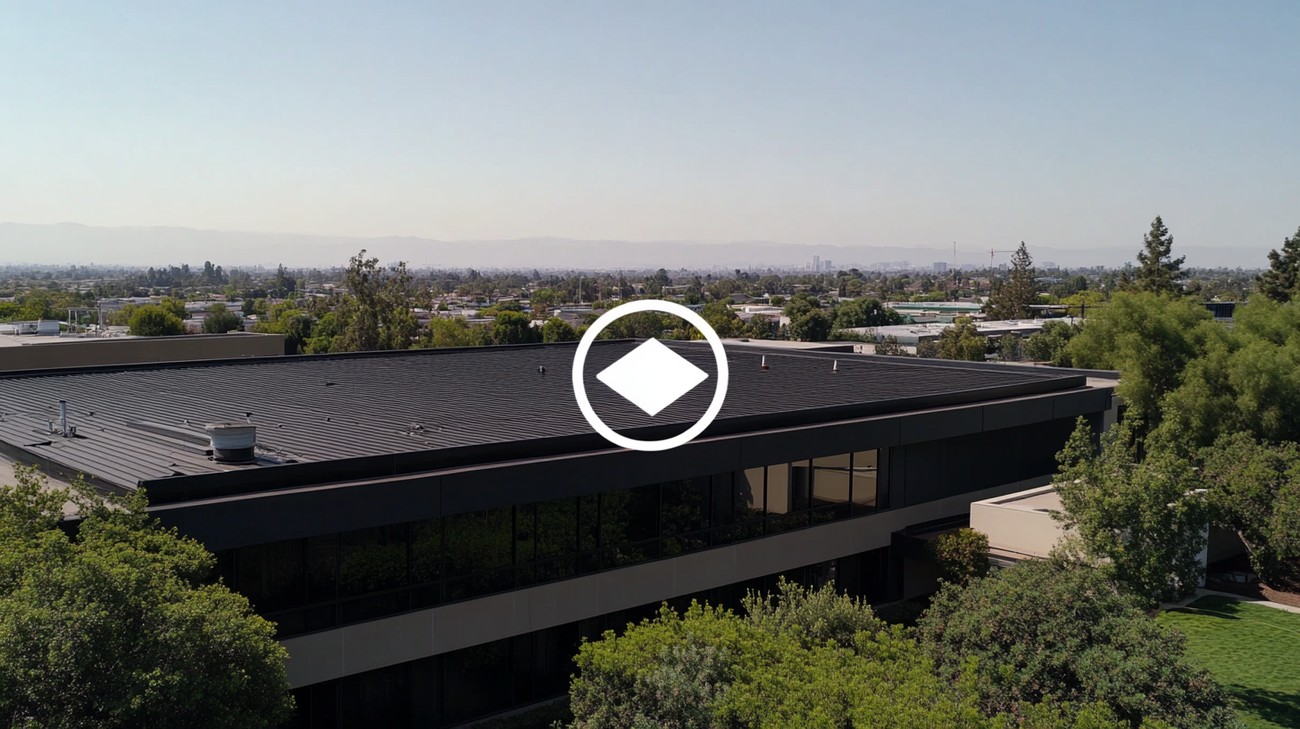
Frequently Asked Questions about Commercial Roof Inspection
How Often Should a Commercial Roof Inspection be Conducted?
The frequency of commercial roof inspections depends on several factors such as the building's age, weather conditions, known problems, and the roof's type. However, general recommendations suggest that an average commercial roof should be inspected at least twice a year. It's also advisable to have your roof inspected after major weather events to identify any potential damages.
What Does a Commercial Roof Inspection Involve?
During a commercial roof inspection, a professional inspector looks for leaks, unusual wear and tear, damage caused by windblown debris, organic growth issues, and problems that could cause premature aging and roof failure. They also inspect the overall condition of the roofing material, gutters, drains, vents, chimneys, skylights, and other roof penetrations.
What are the Benefits of a Roof Inspection for my Commercial Property?
Commercial roof inspections offer several benefits. They extend the lifespan of your roof, saving you premature and expensive roof replacements. They can help detect issues early, reducing the potential for serious damage and expensive repairs. They offer peace of mind by ensuring the roof over your business is in excellent condition. Additionally, they could be a requirement for some insurance policies.
How Much Does a Commercial Roof Inspection Cost?
The cost for a commercial roofing inspection can vary depending on several factors such as the roof's size, its pitch, its complexity, and the inspector's experience. However, the average price typically ranges from $200 to $500. It's advisable to request quotes from several companies to get the best deal.
How Long Does a Commercial Roof Inspection Take?
The duration of a commercial roofing inspection varies depending on the size and complexity of your roof. An average inspection can take anywhere between one to three hours. Extensive roofs or roofs in a state of disrepair can take longer.
Who Should Perform a Commercial Roof Inspection?
It's advisable to hire a certified and experienced professional to conduct your commercial roof inspection. Professionals are trained to safety inspect a roof without causing additional damage. They are also capable of identifying subtle signs of damage that an untrained eye might overlook.
What Happens After a Commercial Roof Inspection?
After a commercial roof inspection, the inspector will provide a comprehensive report detailing their findings. This report should provide an overview of potential problems, suggest necessary repairs, and give an estimation of the roof's remaining life. After receiving this report, you should take timely action to address any problems to prevent further damage.
When is the Best Time to Schedule a Commercial Roof Inspection?
Commercial roof inspections can be scheduled at any time of the year. However, it's recommended to schedule one after severe weather events and in late spring and early fall. With inspections in these periods, any damage caused in the previous season can be identified and corrected before it worsens.

Pros of Commercial Roof Inspection
Prolongs Lifespan of the Roof
Commercial roof inspections are an integral part of maintaining a commercial property. They allow property owners to identify potential issues early and address them before they escalate into severe, costlier problems. Early detection and repair can enhance the durability of a commercial roof, thereby prolonging its lifespan and enabling business owners to get the most out of their investment.
Ensures Safety
Routine commercial roof inspections are especially important when it comes to safety. By catching minor problems like leaks or loose materials early, owners minimize risks associated with roof collapse and water damage, which could cause significant harm to both employees and clients. Moreover, these inspections help in maintaining the structural integrity of the whole building.
Cost Saving
Commercial roof inspections may uncover small damages which can be fixed at a low cost. If these problems are not detected early, they can worsen over time and cost the business more in future repairs or even replacement. Preventive maintenance, driven by regular inspections, can save businesses a considerable amount of money in the long run.
Enhanced Planning
Knowing the condition of your commercial roof at every point in time can be a valuable asset in planning ahead. Whether it's a budget for routine maintenance, repairs, or a full replacement, being informed in advance can help in distributing resources and adjusting financial plans accordingly.
Helps in Insurance Claims
If an unfortunate incident occurs, such as a storm or other natural disaster, having a recent inspection report can provide an updated record of the roof’s condition. This documentation can be vital when filing an insurance claim as it enables an easier and smoother process.
Sustainable, Energy-Efficient Benefits
Commercial roof inspections can identify areas where the roof isn't energy efficient. For instance, damaged insulation can cause significant heat loss during winter and let excessive heat in during summer, leading to increased energy consumption and costs. Prevention and correction of these flaws can improve energy efficiency and possibly even qualify the building for green certifications.
Cons of Commercial Roof Inspection
Costs Involved
One of the obvious downsides to regular commercial roof inspections is the cost. Although these inspections can save businesses money in the long term, the upfront costs are not negligible, especially for large commercial buildings or complexes.
Disruption of Business Operations
While most roof inspections do not require a business to shut down, some problems discovered during an inspection might necessitate significant repair work that could disrupt regular operations. This inconvenience could lead to a loss of business or require rescheduling of activities.
Potential for Undetected Issues
Even with the most thorough inspection, it's not always possible to identify every single potential issue. For example, some problems may reside within the roofing layers, and are not visible from a surface examination. This could lead to a false sense of security.
Dependence on Professionals
For an effective roof inspection, you require a certified and experienced professional. Unfortunately, not all inspectors are reliable or thorough. If an inspection is not conducted correctly, significant problems may be missed. To avoid this, owners must invest time and effort in selecting the right inspection company, which can be a complex task in itself.
Time Consuming
Routine roof inspection can be time consuming, especially for large commercial properties. Although the time spent is usually worthwhile, it is still a commitment that business owners must be prepared to make.
In conclusion, while commercial roof inspection has its own set of drawbacks, it offers numerous benefits that make it a practice worthy of considering. It can save businesses from expensive repairs in the future and contribute to overall safety, planning, insurance claims, and sustainability efforts.

Myths and Misconceptions about Commercial Roof Inspection
Roof inspection is a critical part of structural maintenance, ensuring the durability, safety, and efficiency of commercial premises. Despite its importance, there exist numerous myths and misconceptions regarding commercial roof inspection. These misconceptions may mislead building owners, de-emphasize the need for regular inspections, or propagate poor practices that risk severe damage to the structure. Below, we debunk some of the most common roof inspection myths and misconceptions.
Myth 1: Commercial Roofs Don't Require Regular Inspection
Misconception: Roofs Are Built to Last, No Regular Monitoring Needed
Many people are under the impression that once a roof is installed, it requires little to no attention until visible damage occurs. This idea stems from the belief that roofs are inherently durable and resistant to damage.
Reality: Regular Inspections Prolong a Roof’s Lifespan
Just like other structural components, roofs are subject to wear and tear due to environmental factors and usage. Regular inspections identify minor issues before they turn into serious problems, significantly extending the roof's lifespan.
Myth 2: Roof Inspections Are a DIY Job
Misconception: I Can Do My Own Roof Inspections
Some believe that commercial roof inspection is as simple as taking a look and noting any visible damage. This misconception stems from underestimating the complexity of roofing systems and overestimating one's abilities.
Reality: Professional Expertise is Crucial
Roof inspections involve much more than looking for visible damage. A professional roof inspection includes examining the roof's structural integrity, flashing condition, and drainage system. It demands a depth of knowledge and experience most property owners lack.
Myth 3: Any Roofing Contractor Can Carry Out Inspections
Misconception: All Roofing Contractors Are the Same
It's a common myth that any contractor with roofing experience can effectively perform a roof inspection.
Reality: Not All Contractors Are Qualified
A proper roof inspection requires a skilled professional with specific training and a detailed knowledge base. It's crucial to choose a certified contractor who recognizes your unique roofing system and possesses the necessary experience.
Myth 4: Roof Inspections Aren't Necessary Unless There's a Leak
Misconception: No Leaks, No Problems
This myth assumes that if there are no visible issues like leaks, the roof is in good condition and doesn't need inspection.
Reality: Hidden Problems Can Exist
Leaks are just one indication of roof damage. Other issues such as loose flashing, damaged insulation, or poorly performing ventilation can go unnoticed but significantly damage your roof over time. Regular inspections help catch these potential problems early.
Myth 5: New Roofs Don't Require Inspection
Misconception: New Roofs Are in Top Condition
People often believe that since new roofs are in perfect condition, immediate inspection is unnecessary.
Reality: Even New Roofs Can Have Defects
While a new roof should theoretically be problem-free, incorrect installation or low-quality materials can lead to unforeseen issues. Early inspections can identify and resolve these problems before they cause serious damage.
By entertaining these misconceptions, one can end up with costly repairs, reduced lifespan of the roof, and unsafe conditions. Recognizing and dispelling these myths plays a substantial role in helping you manage your commercial roofing system more effectively.
Summary
Having regular commercial roof inspections can make a world of difference for your enterprise. It's about more than just keeping your premise tidy and polished - it's a crucial preventive measure that can save you from surprising and costly roof repairs. With a commercial roof inspection, you get the assurance that your roofs are at their best and any potential roofing issues can be flagged early before they escalate into major problems.
Think about the peace of mind you get by investing in a commercial roof inspection. Professional inspectors can provide in-depth reports on the overall condition of your roof and identify any early signs of wear, tear, or damage. Additionally, they advise on maintenance strategies and, if necessary, on the various options available for repair or replacement. This way, you can make informed decisions and avoid any unnecessary roof-related headaches.
In the end, it all boils down to protecting your property and business. A commercial roof inspection is not a wasteful expense, but a necessary investment in your asset's longevity and your business's smooth operation. Remember, the sooner you catch a problem, the less expensive it becomes - not just in monetary terms but also in reducing downtime for your business. So, when you put your trust in commercial roof inspection, you are making a smart move towards sustainability and profitability.
About GVD Renovations & Remodeling
GVD Renovations & Remodeling is your prime partner in Roseville, CA, for all your home renovation needs! In our corner of the Golden State, we are known for our commitment to outstanding workmanship, affordable pricing, and jaw-dropping results. With decades of combined experience among our talented team, we have transformed countless homes with stylish kitchens, bathrooms and exteriors. We absolutely love challenging ourselves and bringing our clients' visions to life. Every project we take on is a new opportunity to show the Roseville community just how refreshing a home renovation can be with the right partner beside them.
Tags: building inspection, roof maintenance, property management,

